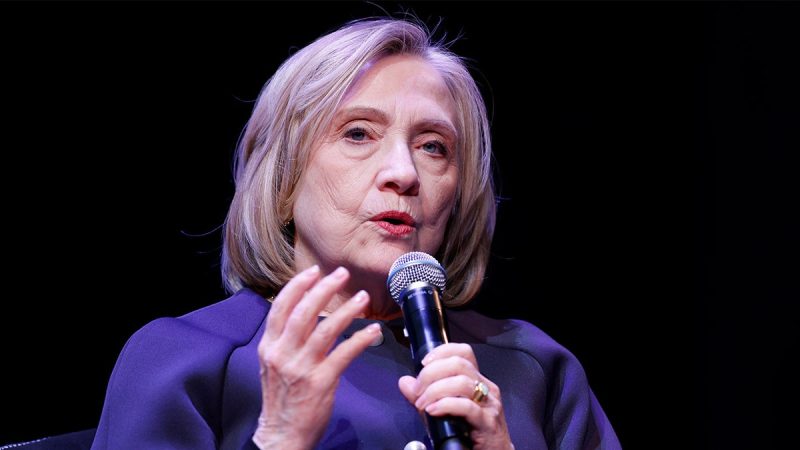Former Secretary of State Hillary Clinton described herself as a victim of election disinformation during a panel discussion on Thursday, and warned that the advancement of artificial intelligence (AI) will make her experience ‘look primitive.’
Clinton was taking part in a Columbia University event titled, ‘AI’s Impact on the 2024 Global Elections.’
She discussed her own experience in 2016 when she lost to former President Donald Trump, pointing out that the internet was populated with memes, fake content and conspiracies about her in the lead-up to Election Day.
‘I don’t think any of us understood it. I did not understand it. I can tell you, my campaign did not understand it. Their, you know, the so-called ‘Dark Web’ was filled with these kinds of memes and stories and videos of all sorts…portraying me in all kinds of… less than flattering ways,’ Clinton said. ‘And we knew something’s going on, but we didn’t understand the full extent of the very clever way in which it was insinuated into social media.’
Clinton argued it was that leap to social media that accelerated the false content’s integration with everyday Americans.
‘There are people today who think I’ve done all these terrible things because they saw it on the internet. And they saw it on the internet in their Facebook feed or some, you know, Twitter this or Snapchat that. They were, you know, following the breadcrumbs,’ she said, warning of those efforts: ‘And what they did to me was primitive.’
The former Democratic presidential nominee claimed the online conspiracies about her are now being used to create more sophisticated false content with more advanced technology.
‘What we’re talking about now is the leap in technology that we’re dealing with. You know, they had all kinds of videos of people looking like me, but weren’t me, and they had to keep whoever that woman was with her back to the camera enough so that they couldn’t actually… be found out,’ Clinton said. ‘Now they can just go ahead, they can take me.
‘I’ve had, you know, people who are students and experts in this tell me… because they’ve got such a library of stuff about me, they’re using it to practice on and see how more sophisticated they can get. So I am worried because, you know, having defamatory videos about you is no fun. I can tell you that. But having them in a way that you really can’t make the distinction… you have no idea whether it’s true or not, that is of a totally different level of threat.’
The potential prevalence of deepfakes — AI-generated videos, audio or images that show altered or completely fabricated scenarios — has already raised concern among U.S. officials ahead of November’s elections.
Those same officials are also concerned about the threat of hostile foreign actors intervening in the 2024 cycle.
FBI Director Christopher Wray warned in a speech last month that AI technology is lowering the barrier to entry for malign actors looking to meddle in U.S. elections.
‘This election cycle, the U.S. will face more adversaries moving at a faster pace and enabled by new technology,’ Wray said.
‘Advances in generative AI, for instance, are lowering the barrier to entry, making it easier for both more and less sophisticated foreign adversaries to engage in malign influence while making foreign influence efforts by players both old and new, more realistic and more difficult to detect.’
